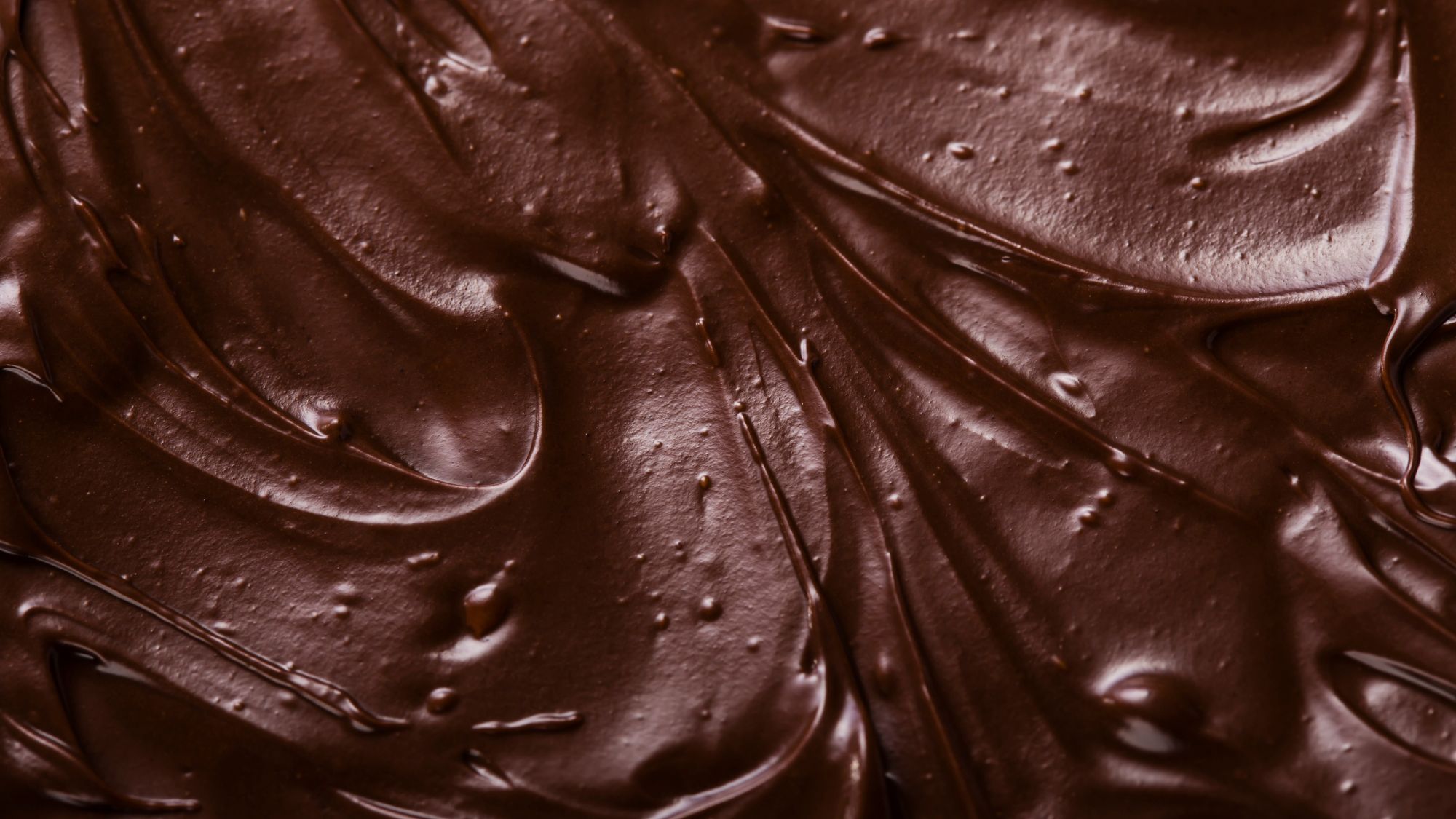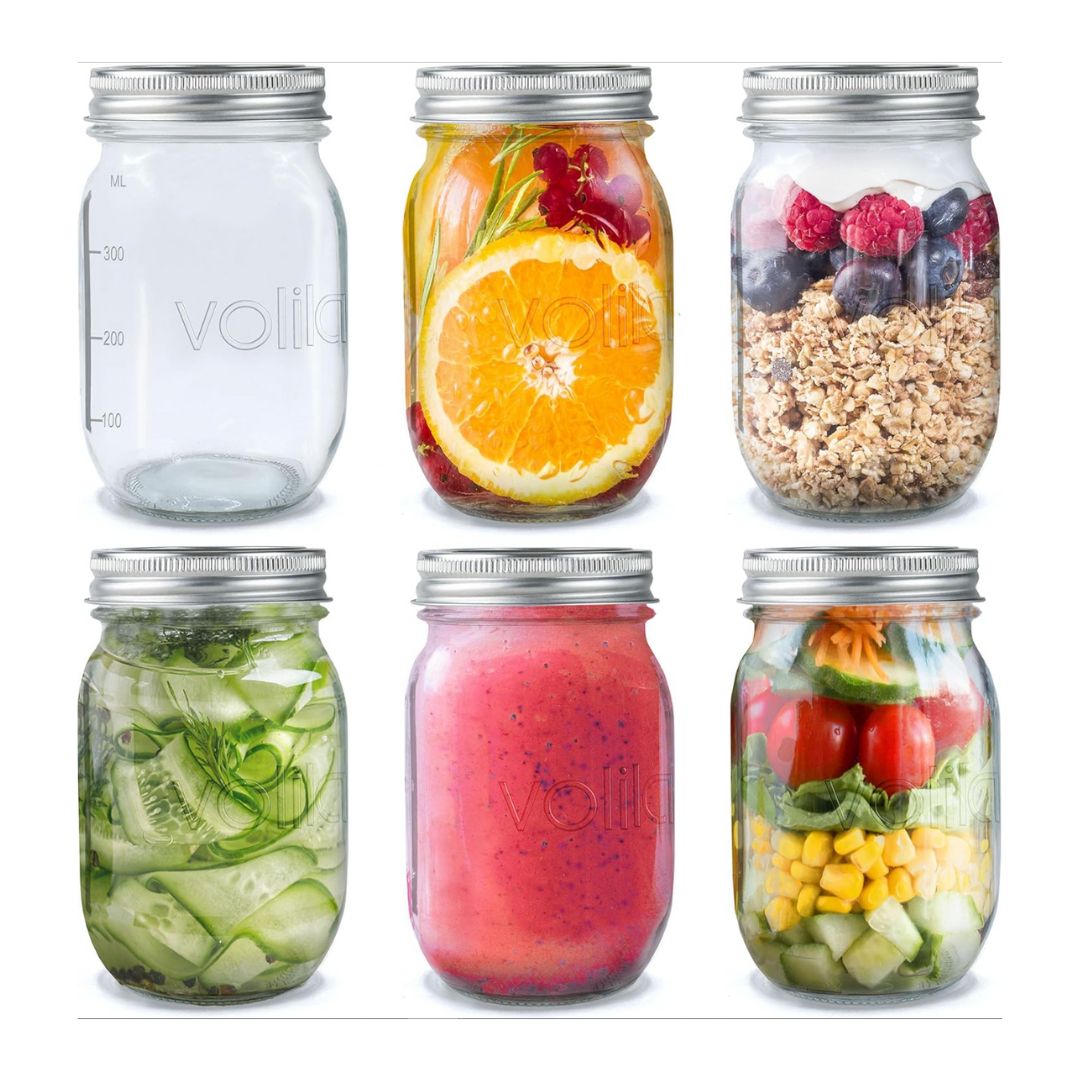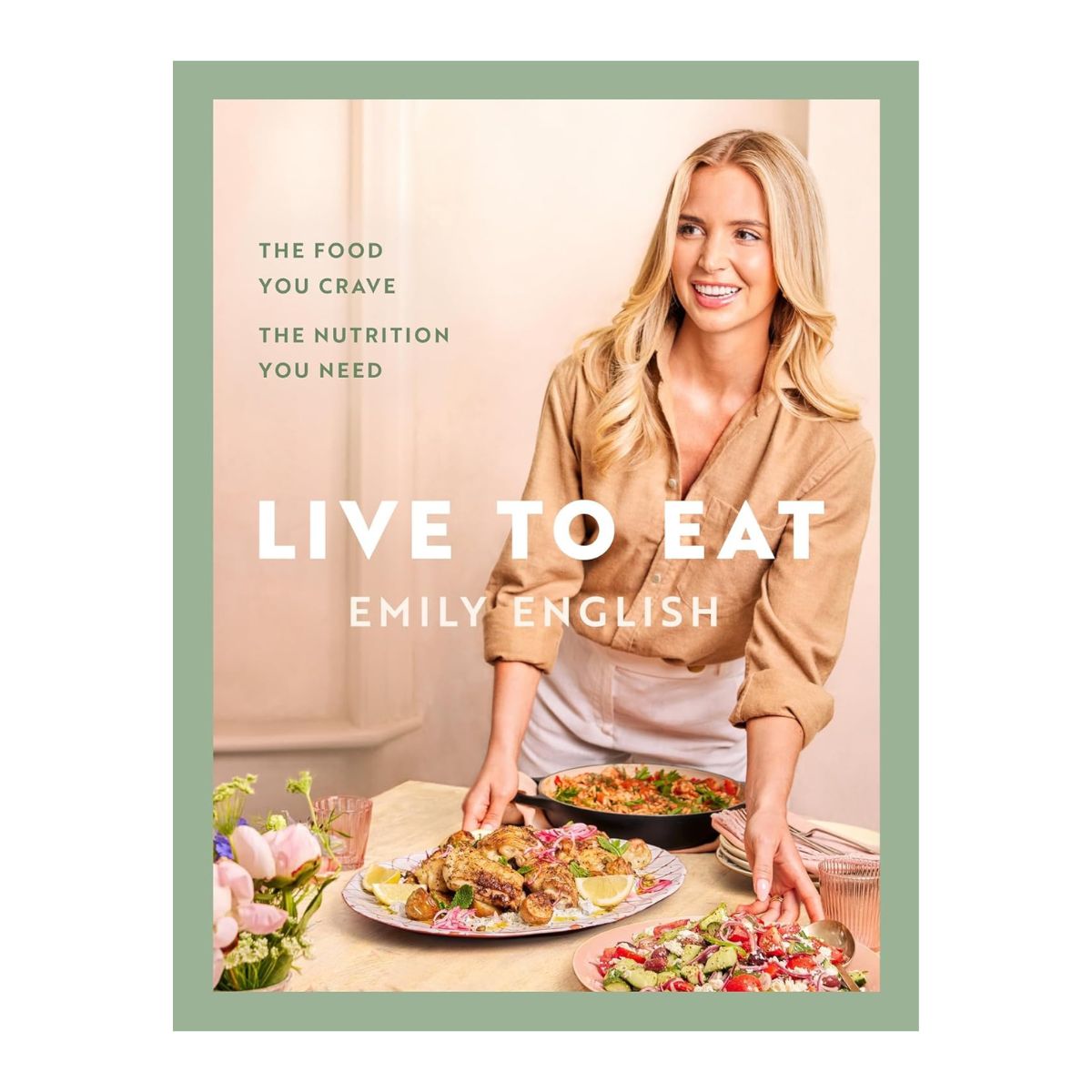We’re All for Boosting Our Nutrition – But Experts Reckon Joe Wicks’ Sugar Ban Is Problematic. Here's Why
Cutting entire food groups is never a simple fix, which is part of the reason why Joe Wicks’ ban has sparked debate.


Joe Wicks is hard not to love. The Body Coach isn’t just a fitness influencer; he’s the man who bounced his way through our lockdown mornings in neon shorts, convincing kids and parents alike to lunge, stretch and plank their way out of cabin fever. His relentlessly sunny attitude, quick-fire recipes, and zero-gym-needed workouts turned him into more than just a fitness coach, but something of a national treasure.
So when Wicks announced he was cutting out sugar completely earlier this year - fruit included - his followers paid attention. His words carry weight; this is the man who made burpees a national pastime, after all. But his description of sugar as “addictive,” paired with talk of “relapse,” when breaking his 11-week sugar-free streak, raised eyebrows among registered dietitians and medical professionals. Was this just a passing comment in Wicks' health journey? Or a move that risks making food feel like something to fear?
The backdrop is complicated. The UK does, undeniably, have a sugar problem. Current NHS guidelines suggest no more than 30 grams of free sugar a day for adults (that’s about seven teaspoons) - yet studies from the British Nutrition Foundation suggest we’re still consuming almost double that on average, depending on age group.
Soft drinks remain the single biggest source of sugar for children and teenagers. The good news? Policy does work. Since the introduction of the UK’s Soft Drinks Industry Levy in 2018, daily free sugar intake has already dropped by up to 11 grams for adults and 5 grams for kids, according to research by University College London.
It’s proof we’re moving in the right direction, but as a nation, we have a serious sweet tooth problem. Which is why Wicks’ challenge lands in such a hotly debated grey area. On one hand, he’s shining a spotlight on a real issue; on the other, his language hints at diet culture rigidity that nutrition experts warn against. It begs the question: do we need a full-on ban, or just a smarter, kinder relationship with the sweet stuff?
Keep scrolling for the expert's take. And while you're here, do scroll our round-up of the best Joe Wicks workouts, or get inspired by these balanced and nutrient-dense Em the Nutritionist recipes, Glucose Goddess recipes, or Dr Hazel Wallace recipes.
Joe Wicks Has Entirely Cut Out Sugar - So, What Do Top Nutritionists Say?
Is sugar really “addictive”?
Wicks’ framing of sugar as addictive strikes a chord for many. Who hasn’t felt the pull of a packet of biscuits late at night? While a 2013 study showed sugar can stimulate the brain’s reward pathways in a similar way to drugs, experts caution against using the term too literally.
Celebrity news, beauty, fashion advice, and fascinating features, delivered straight to your inbox!
“Studies have suggested that excessive consumption of sugar can activate reward pathways in the brain, which are similar to nicotine or cocaine addiction,” says Dr Shashi Prasad, women’s hormonal health specialist and weight management expert at The Marion Gluck Clinic. “Some people describe this as being ‘hooked’ on sugar, and the cycle of craving and reward can be very real.”
But she cautions against using this language too freely. “Overly negative language that frames sugar as ‘toxic’ or a ‘fear food’ can be unhelpful, as it risks promoting anxiety around eating and, in some cases, may contribute to disordered eating behaviours.”
Nutritionist, author and founder of GP Nutrition, Gabriela Peacock. agrees: “I do think it’s important to be mindful of the words we use around food, because it can be such a sensitive subject. When we label foods as 'bad' or talk about cutting things out entirely, it risks creating a fearful or negative relationship with eating.”
A post shared by Joe Wicks (@thebodycoach)
A photo posted by on
Are there any benefits to cutting out sugar?
Consuming high amounts of sugar day-to-day can trigger rapid energy spikes followed by crashes, leaving us feeling drained and fatigued. Hello, 3 pm slump. Over time, studies have linked excessive sugar to type 2 diabetes, heart disease, high blood pressure, elevated cholesterol or triglyceride levels, inflammation, and even cognitive issues such as Alzheimer’s or dementia.
Reducing added sugars can therefore have tangible benefits. Wicks has described feeling “more energised, more focused” and, at age 40, being in the best shape he's been since he was 30.
Peacock agrees that reducing added sugar can have noticeable effects: “Many people report feeling more energised, experiencing improvements in skin and digestion, and finding it easier to manage their weight when they cut back.”
Dr Prasad adds that this aligns with the physiological effects of reducing processed sugars, particularly in adults who may struggle with blood glucose regulation: “Reducing free sugar intake can lead to fewer peaks and dips in energy, and for some people, noticeable improvements in concentration and mood.”
Are there any risks to cutting out sugar?
Sugar in excess is undeniably bad for us. It can increase the risk of obesity, type 2 diabetes and other chronic diseases. But that doesn’t mean you need to cut it out entirely – moderation and balance are key.
Perhaps the most surprising element of Wicks’ sugar ban is his decision to forgo fruit. For years, his brand has been built on simple, healthy recipes – many featuring a banana or two. To suddenly treat fruit as off-limits feels jarring.
"I wouldn’t usually recommend eliminating natural sugars, like those in fruit," says Peacock. "They come packaged with essential vitamins, minerals and fibre that are so important for overall health."
In fact, Peacock goes as far as to say she wouldn’t usually advise eliminating sugar entirely. "Natural sugars, like those found in fruit, provide energy as well as essential vitamins, minerals and fibre."
Dr Prasad echoes the importance of making distinctions: “It is important to differentiate between highly processed, refined sugars and the naturally occurring sugars found in foods like fruit. Whole fruits are full of fibre, vitamins, and phytonutrients, which support overall health. On the other hand, highly processed foods often contain significant amounts of free sugar – such as sweetened cereals and fizzy drinks - which have health implications. In other words, not all sugar is inherently ‘bad.’”
What Is The Response On Social Media?
Initially, Wicks was applauded for his efforts to cut out sugar, which started as a week-long challenge, cutting out everything from fresh fruit to honey, yoghurts, brownies, cakes, fizzy drinks, and more.
Unsurprisingly, Wicks’ subsequent all-or-nothing stance on sugar hasn't gone unchallenged. In the comments beneath his "relapse" post, nutritionists and dietitians voiced concern that his messaging risked fuelling disordered eating patterns. Several pointed out that describing sugar as an “addiction” - and banning it entirely from the house - mirrors the very restrict-and-binge cycle many of their clients struggle with.
“Banning sugar from the house is fuelling your restrict and binge cycling,” wrote Dr Sarah Cooke, a specialist in disordered eating. “You may have lived experience, but this doesn’t make you an expert in how to manage it.”
Criticism also focused on his fruit-free approach. Joshua Hills, a registered nutritionist, said: “Demonising fruit is even worse, Joe. This is a perfect example of the restrict-and-binge cycle.”
Eating Disorder Dietitian Priya Tew added: “Spreading this message on such a large platform is really dangerous… abstaining from all sugar isn’t possible for most people and can lead to disordered eating.”
The overall sentiment is clear: Wicks’ advice may be well-intentioned, but health professionals fear the all-or-nothing approach could be triggering and confusing for many of his millions of followers.
What The Experts Say: Choose Balance Over Bans
There’s no denying that too much sugar is bad for us. But framing sugar as something to be completely eliminated can backfire. Restriction often breeds obsession: tell yourself you can never have chocolate again, and chances are it’s all you’ll think about.
The NHS’s advice is clear: keep free sugars low, but don’t fear naturally occurring sugars in whole foods like fruit and dairy. It’s about creating habits you can actually live with – not a 30-day reset that leaves you bingeing on day 31.
While Wicks’ message has raised awareness, it risks oversimplifying the issue. “The focus should be on education, moderation, and supporting individuals to make balanced nutritional choices,” says Dr Prasad. “Rigid restrictions or fear-based messaging rarely work long term.”
A post shared by Healthy Recipes (@fithealthyrecipes)
A photo posted by on
So, should you follow Joe’s lead?
The truth is, Wicks isn’t wrong to spotlight sugar. As a nation, we could all benefit from paying more attention to it – especially the “hidden sugars” that creep into cereals, sauces and so-called health bars. His heart, as always, seems to be in the right place.
But where his message stumbles is in the delivery. For many, hearing a beloved public figure describe sugar as an addiction - and fruit as off-limits -risks amplifying the very diet culture narratives we’re trying to leave behind.
Perhaps the most balanced takeaway is this: if Joe’s challenge inspires you to look more closely at your sugar intake, great. But remember that nutrition isn’t about hard bans, relapses or resets. It’s about learning to enjoy food without fear - whether that’s a handful of berries, or yes, even the occasional slice of cake.
Shop MC-UK approved products for a balanced lifestyle

Meal prepping is a simple way to take control of your nutrition, helping you make thoughtful ingredient choices and manage portion sizes. If you’re aiming to cut back on sugar, packing a balanced lunch in one of these mason jars is a smart strategy - it keeps you full, nourished, and far less tempted by the 2 pm biscuit or office cake run.

Part of living a balanced, healthy lifestyle is staying active – and that means having the right kit. If you’re swapping your usual leggings for something lighter, these Adanola shorts are a firm favourite. Made from a breathable, four-way stretch fabric with 70% recycled polyamide, they’re supportive, comfortable, and a summer staple for keeping your body moving with ease.
Can cutting out sugar help with weight management?
Reducing your intake of refined sugars (found in biscuits, cakes, sodas, sweets, more) can support weight management and improve metabolic health, but the most sustainable results come from balanced eating and lifestyle habits rather than implementing extreme restrictions.
Dr Shashi Prasad adds that lowering our free sugar intake can help stabilise blood glucose, which may reduce cravings and prevent energy crashes that can sabotage healthy eating.

Georgia Brown is a freelance journalist covering fashion, lifestyle, heath and fitness. With bylines in Harper’s Bazaar, Women’s Health, and HELLO! where she formerly held the position of Senior Lifestyle & Fashion Writer, she’s also the co-founder of run club Sunnie Runners and is a devoted marathoner. With a particular love for sustainable fashion and slow living, Georgia can often be found sifting through London's best vintage stores to find the best pre-loved pieces.
